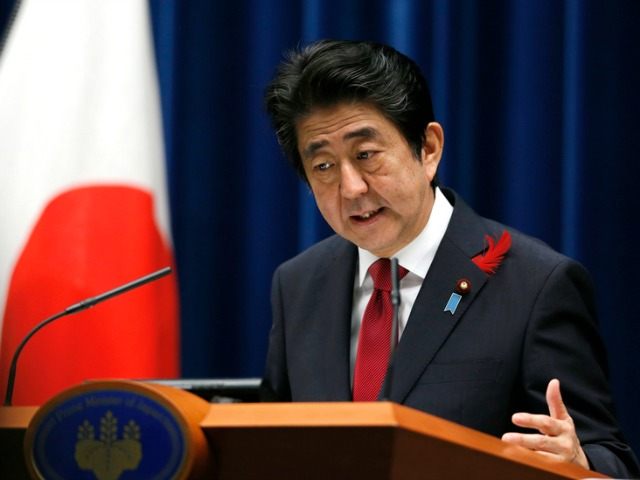The Japanese government has announced that next year, it will open a representative office in Erbil, Iraq, the capital of the Kurdistan Regional Government (KRG) of Iraq. The office will serve to expand Japan’s role in the region, as well as develop its close relationship with Kurdish leaders.
In a meeting with Kurdish Foreign Relations Minister Falah Mustafa Bakir, Japanese Ambassador to Iraq Fumio Iwai announced the new planned office, which will allow Japanese officials to work more directly with the Kurdish government without having to go through its embassy in Baghdad, or the Shiite Arab government operating there. As Iraqi Kurdistan is not a full state, Japan cannot open an embassy in Erbil, though the autonomous region has expanded its influence significantly as it has become the most reliable bastion of resistance against the Islamic State (ISIS).
During the meeting, Japanese Ambassador Iwai used the opportunity to congratulate the Kurdish Peshmerga forces on the liberation of Sinjar City, which had been under ISIS control for more than a year before troops broke through to the region on Friday. The Japanese government also announced the allocation of $7 billion in humanitarian aid to Iraq, much of it directly to the Kurdish government. The funds are to be used for the reconstruction of devastated areas such as Sinjar, as well as for the maintenance of facilities in areas as yet untouched by ISIS, but increasingly pivotal to the survival of much of Iraq’s civilian population, particularly Christian and Yazidi minorities. “In the Kurdish parts, some projects like water services of Halabja and Erbil as well as Deraluk Dam will be accomplished in the near future,” Iwai explained.
The expansion of Japan’s role in Iraq, and particularly Kurdish Iraq, is a long-time coming since the time of Saddam Hussein. While constitutionally a pacifist country, Japan made its most significant post-WWII military stride in 2003, when Prime Minister Junichiro Koizumi pushed a bill through the legislature that would allow for Japan to send 1,000 troops from its self-defense forces to Iraq as part of the U.S. coalition to eradicate terrorism.
The move was intensely controversial, as are any military moves by the federal government in Japan, but was warmly received by the Kurdistan Regional Government, which also applauded U.S. intervention against Hussein. “We welcome Japan’s decision to send troops to Iraq and we offer Kurdistan as a base. Security is not an issue there and we need the kind of humanitarian and reconstruction assistance that Japan can offer,” said Nechirvan Barzani, Prime Minister of the KRG, in an interview with the Financial Times at the time.
The offer of allowing Japanese troops into Kurdistan could help soften the image of their deployment as an occupation of a hostile territory, but rather deployment to a friendly region requesting assistance. Barzani made the offer to then-Deputy Chief Cabinet Secretary Shinzo Abe.
Shortly after becoming Prime Minister, Abe returned the favor. In 2013, the KRG announced a new cooperative effort with Japan to aid the thousands of refugees fleeing the Syrian Civil War who had ended up in Erbil and the surrounding areas. Japan offered $280 million in aid, as well as “tents and other equipment” for housing. Deputy Minister of Foreign Affairs Nobuo Kishi visited Erbil on Abe’s behalf, becoming the highest-ranking Japanese official to do such a courtesy to the KRG.
While Japan claims to have no evidence of any of its nationals being involved with or having the potential to radicalize into members of ISIS, the terrorist group’s presence in Iraq has raised the stakes for Tokyo’s involvement there dramatically.
In January 2015, ISIS released a video depicting the beheading of two Japanese nationals, Kenji Goto and Haruna Yukawa, following refusal on the part of the Japanese government to pay ransom for them. Rather than cede to ISIS demands, Abe delivered a speech days before their beheading vowing to invest $200 million in the “development of human resources and infrastructure” in Iraq and Syria to bolster anti-ISIS elements.
Following the beheadings, Abe attempted to pledge troops to the fight against ISIS. The move was hugely controversial and widely opposed by Japan’s pacifist factions in both the public and the legislature. Also under scrutiny were Abe’s harsh words for the Islamic State, believed to have been improvised after his speech had been written: “I am infuriated by these inhumane and despicable acts. … I will never forgive these terrorists. I will work with the international community to hold them responsible for their deplorable acts.”
For now, Japan’s involvement in Iraq will remain non-military, though it appears the government will continue to expand its work with the KRG. The presence of another staunch ally in the region will likely benefit the United States, and even other Kurdish factions that do not necessarily get along with the KRG, including the Syrian Kurdish PYD and the Kurdistan Workers’ Party (PKK), both of which have expanded their presences to Iraq. Kurds are also developing a growing presence in Japan; while the nation has taken in no Syrian refugees, it has allowed in thousands of ethnic Kurds. Currently, it is believed that about 1,000 Kurds live in Warabi, Japan. All who have applied for refugee status, however, are still waiting for a verdict.

COMMENTS
Please let us know if you're having issues with commenting.